Erasmus in Perugia
Hey!
For those who are lucky enough to be going to Perugia and enjoying this beautiful city, I want to share the following with you:
How do you find accommodation?
There are many ways to find accommodation, one of which is to search online (e. g. Immobiliare, Kijiji, amongst others) or through Facebook within these pages: "affiti perugia"; "affiti studenti perugia"; and, "affiti/rentals/alquiler". You can also search for accommodation with a centrally-located agency where Spanish is spoken (situated on Via Alessi). In my case, I found accommodation through the second option. I contacted the owners of the house so I could go and see it, and I ended up staying there. The good thing about this is that you save yourself the price of paying a real estate agency.
From your arrival until you find a house, you can stay in hostels like: Little Italy or Ostello della Giuventu' di Perugia. They are central and both are very well-priced. With regards to the latter, the problem is that, between 11am and 3pm, it is closed for cleaning, therefore they don't let you stay inside. I chose the second one and it seemed like a good option to me. The location was very good and it also had a kitchen, living area, terrace, and was full of young people!
Aside from the flat option, you also have the option of residences. What they usually do, however, is allocate you one that is in the city's outskirts, so I advise against them. I think the best thing is to live in the centre; it's much more comfortable and better connected via buses and MiniMetro.
Which area is most recommended?
Regarding the areas where to choose accommodation, I would recommend the historic centre of the city. When you arrive, you will grow tired of so many stairs and slopes that you will find in the city. For that reason, the most comfortable option is a central location so you can move around without difficulty.
The university area is where there are the cheapest, in terms of being in the centre, and the most modern flats. On the contrary, central houses are generally old, have no lift-access and quite high ceilings. Even despite that, I still recommend the centre; it's very pretty and you can have everything at your fingertips. Besides, you have a great bus and MiniMetro system to be able to travel to the city's outskirts.
How do you get around Perugia?
Regarding the aforementioned transport, you can get termly or annual passes that include urban buses, the MiniMetro and serves two or three train stations outside of Perugia. If you are someone who has to move around frequently, I would recommend that you get a pass, because if you don't, each ticket will cost you 1, 5€. I decided to get myself a pass and it has been really worthwhile because I had the possibility to use these modes of transport the number of times that I wanted for the duration of the pass.
And Italy as a whole?
To travel around the country by train, there are some discounts that you can benefit from if you get yourself a "cartafreccia". In theory, by using it you also accumulate points for rewards, but if you use it solely motivated by these rewards, it isn't worth it when the number of points per ticket is minimal. The most important thing is validating the ticket once you have purchased it. It's a little strange in Italy in the way that, once purchased, a train ticket can be used approximately within one month for your chosen journey. Therefore, when you are going to use your ticket, you must validate it in a machine so that it registers the day and time of its use. If you don't do it, the ticket inspectors won't hesistate in giving you a fine - it's usually not cheap either...
It's much simpler if you purchase the ticket online. In this sense, you can choose the ticket with a fixed day and time, therefore meaning it's not necessary to later validate it. Also, if you download the Tren Italia mobile app, you can keep the ticket on your phone with a QR code, thereby saving paper and avoiding validation issues.
If you have thought about using this mode of transport frequently, you will become accustomed to waiting... train delays are extremely common.
There are also buses that depart from the "Piazza Partignani" (the bus station) towards different areas of Italy.
Another option, which also exists in Spain, is to use BlaBlaCar. I don't recommend it - the drivers usually drive too fast, and it brings us back to the topic of a lack of punctuality. Obviously, that's not to say that it's always like this, but it generally is.
Besides, we can't forget that Perugia has an airport, which allows you to move around without having to go to bigger airports like Rome, for example. It's not really recommended for moving around Italy because it's quite expensive, and therefore not worth the money. However, in some cases, it is a good option if you want to travel to Belgium or Romania, where there are direct flights and are quite economical (at least they were when I was there).
What to eat and where?
It's clear that one of the main reasons that Italy is famous is for its food with pasta, pizza, and focaccia... In Perugia, you will find loads of places with "pizza al taglio"; pizza slices sold by the portion. The restaurants I recommend going to are Mediterranea and La Pizzeria Romantica - the pizzas at the latter are very good!
In terms of baked goods, there is a really good cake shop located in the main street (Corso Vannucci) called Sandri (it's the oldest in Perugia) where they make a dessert in the shape of a snake, which is very typical of Perugia. Besides that, you can't leave without trying the great Italian panettone!
Something else very typical of Italy is having an aperitif. You will find lots of places where they are offered for a very good price. And with what they give you, you are going to be more than full!
And the nightlife?
There are few places in the centre that close late. If you want to go to a nightclub, you will have to travel by bus (they are free and depart from the "Piazza Universitá). For the days that you just want to have a drink, a recommended place that everyone goes to is the Plaza de la Fuente, in the centre of Perugia.
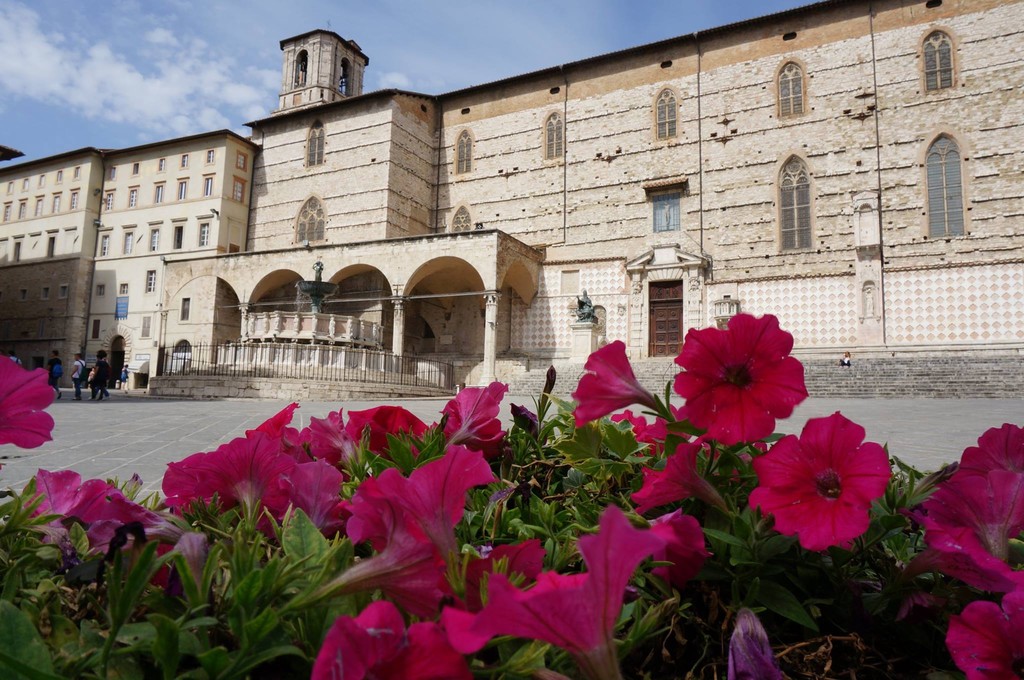
If you opt for the centre, there is a pub that Erasmus students usually go to called "Luna Bar Ferrari". However, the problem with this is that it closes at 3am...
Internet/mobile phone
Another topic that I guess will interest you is the internet and mobile SIMs, amongst other things. I will tell you that, in general, the WiFi in Italy is quite slow. You can find different offers and promotions, but the majority take approximately 3 weeks to install it. In terms of mobile SIMs, there are good promotions that offer quite a few gigabites of data and are usually not that expensive. The majority of people chose the "wind" offer. In my case, I didn't choose any. I used my phone with WiFi both at home and out and about I also found WiFi, as it is quite common to find free WiFi in the city centre.
What to see?
I would advise you to see the historical centre. It's not particularly big, so it's worth it to look around the smallest and narrowest alleys. The outskirts are residential areas lacking any charm. Besides, if you go to Perugia in June, you will enjoy the great Umbria Jazz event, which is one of the most important jazz festivals, as it gathers huge celebrities from the music world! Without a doubt, it's an event worth attending!
One of the places where you can see Perugia from above is the Porta Sole. It's known as the highest point in the city, from which there are beautiful views! Don't hesitate in going there!
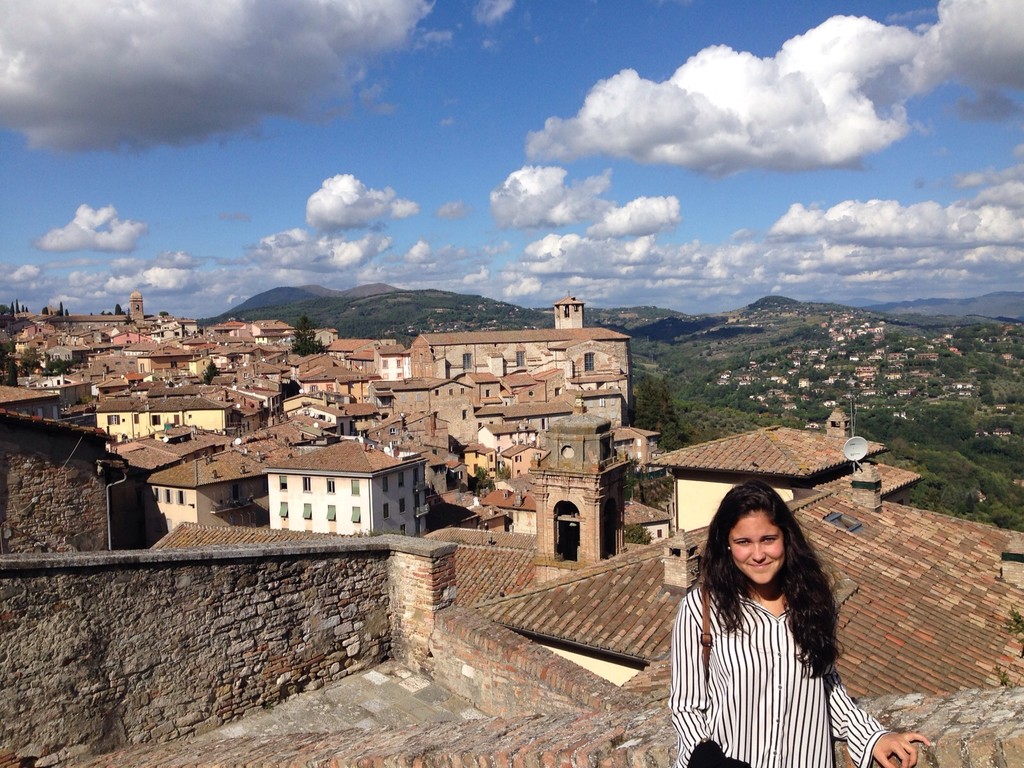
You can't miss out on the opportunity to go La Perugina chocolate factory! The city is really well-known for the event it puts on once a year, Eurochocolate. Stalls are dotted all over the city centre arriving at the main square (where the fountain is), and an enormous chocolate figure is usually found there. The year that I was there, in 2015, they made an enormous chocolate moustache! Undoubtedly, it's something I recommend to you!
What is there to visit outside of Perugia?
Assisi. I am mentioning it first because it's a beautiful place: it was considered a World Heritage Site. To get there, you catch a train from Perugia and then take a bus that takes you to the centre, this is due to the city being situated on a hill. In fact, if you go up above everything, you will enjoy some incredible views of the surrounding mountains.
Gubbio. If you have thought about going, I would recommend that you do it in December/January, during the Christmas period. I am telling you this because in Gubbio they put up the largest Christmas tree in Europe along the side of the hill, complete with beautiful lights. It's very bright and worth seeing! Of course, I love it from the moment I saw it. Moreover, all the city is decorated with life-size figures of Nativity scenes, which gives it a special charm. To get there, I would recommend taking the bus, which takes approximately between an hour and a half and 2 hours. In this case, the train isn't recommended because there aren't good links to this city... you would have to change trains and, in the end, it takes a lot longer.
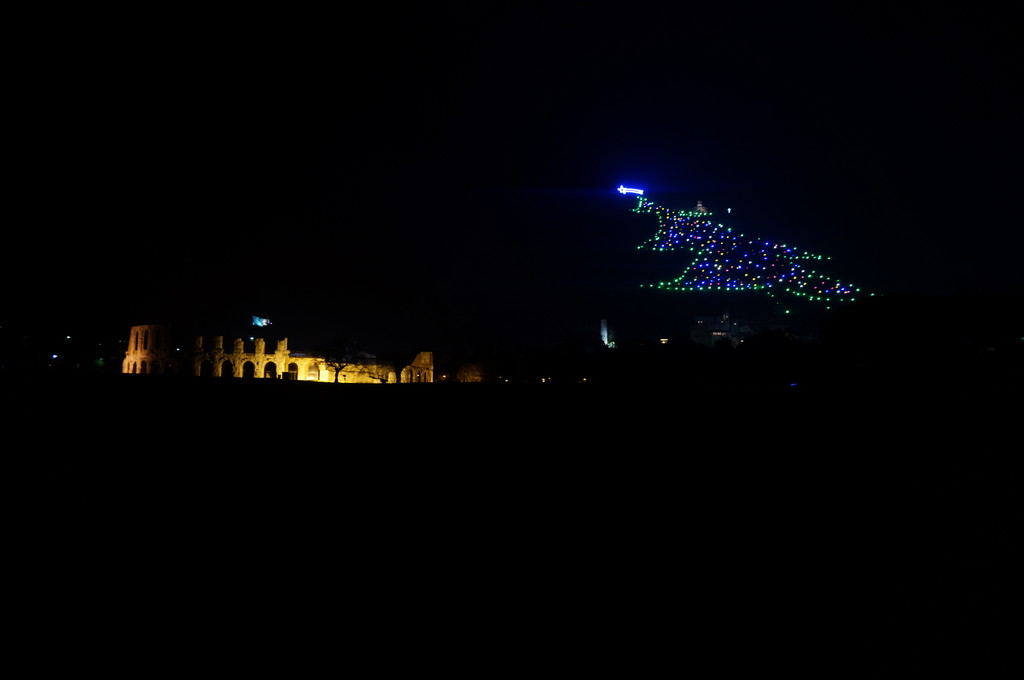
Lago Trasimeno. It's an area about 30 minutes away from the centre of Perugia by train. It's a very beautiful and calm place, for this I undoubtedly recommend it.
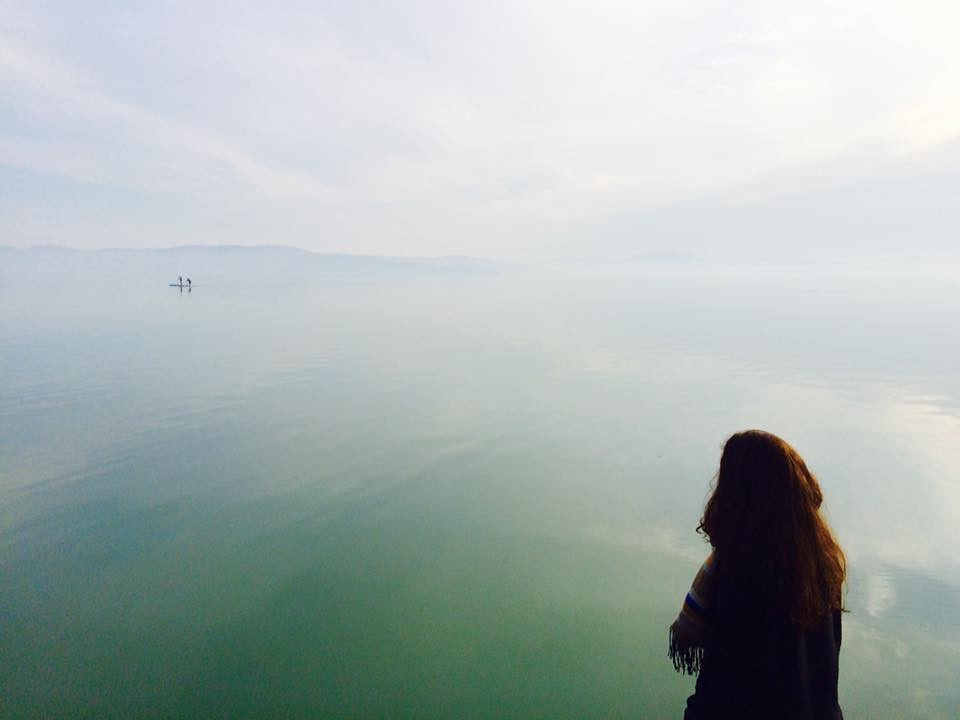
Cascada de Marmore. You have to go! It's obligatory! It's the highest cascade in Italy, and has some beautiful surroundings. However, prepare your wallet... You have to pay to see it... If I remember correctly, it was roughly 10€. To get there, you can take the train, although you have to transfer as there is no direct service.
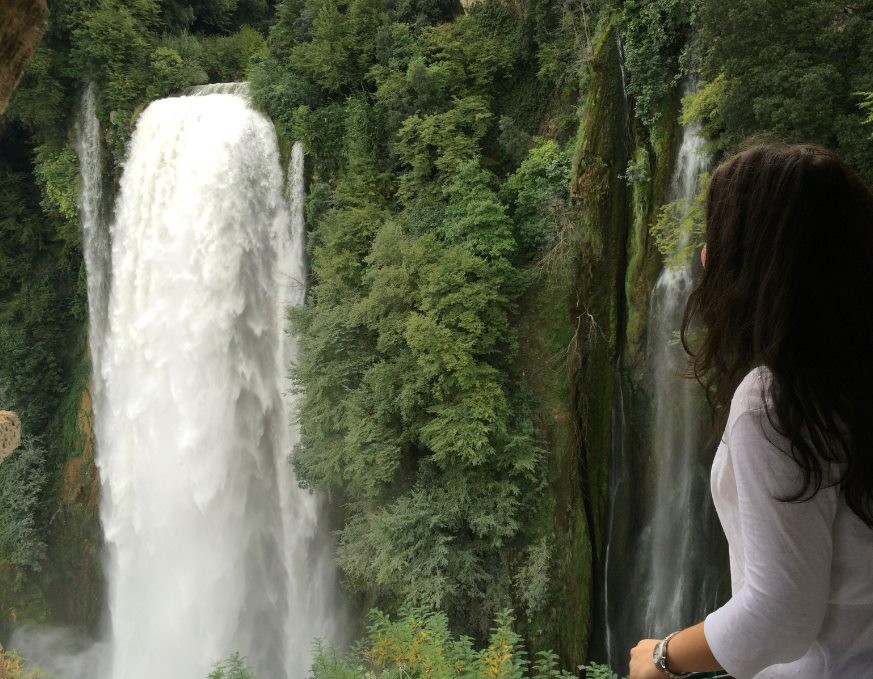
How do you find accommodation when you travel?
There are various options for this:
If you want to go to low-cost places, it's best to opt for hostels. The website Hostel World searches for hostels in the area that you specify. This helped me lots when choosing accommodation.
Another option which I have used a lot is Airbnb. It's a website where you have to register and then contact the owners of houses that are being rented. They can offer full flats, private, or shared, rooms (done in such a way that they would also be there while you are staying).
In the same way, we can find accommodation through Couchsurfing. In this case, the accommodation would be free. It consists of a webpage (where you must also register yourself) through which you can contact people interested in getting to know both people and cultures, and socialising.
At best, these last two options seem a bit risky, however, I certainly recommend them! It's a great way of meeting people and travelling economically!
What is the standard of living?
In relation to Spain, it's higher. It's already been noted in the price of renting a flat, on transport, and in the supermarkets...
In my case, they gave me a grant of 300€ a month, which I paid for the flat and its bills with, and, luckily, it left me with 30€. Then, add up transport, food, and trips that everyone wanted to or could go on. Well, in the end, monthly costs were around 600€...
What is the best way of travelling from Spain to Perugia?
As I already said, Perugia has an airport, but it isn't very well-connected. Therefore, the cheapest way is to fly to Rome and then catch a bus (that takes you from Fiumicino Airport (45-60 mins) or Ciampino Airport (30-40 mins) to Roma Termini). The price of these buses is around 4-6€ (they are usually cheaper if you buy the ticket online, with Terravision, for example. After taking the bus and arriving at the traim station at Termini, you would catch a train to Perugia that can take from 2 to 3. 5 hours (depending on the train you take). The cheapest was 12€, but you could have found tickets for some 40€. Therefore, I recommend that you look at the journeys in advance so that the price doesn't rise too much.
Once you arrive in Perugia, you could take another bus or, failing that, the MiniMetro, to get the city centre. In case you decide to take a taxi, this costs between 12-14€ from the station.
And the climate?
When I arrived in September, it was incredibly hot, like the middle of summer, around 28-32ºC. During winter, it is quite cold, having to wrap up with thousands of jackets, gloves, hats and scarves... However, it didn't rain much; a maximum of 5 times in the 4 months that I was there.
Any language problems?
For those who don't know Italian, don't worry about it! In Italian, it's quick and easy to pick up, so you won't get left behind! The majority don't speak English and, those who do, don't do it very well... That's precisely why you will have to develop your Italian, which will make you finish learning it faster!
Also, the university generally offers a free course for approximately 3 weeks at the beginning of the semester, which will make you advance quicker with the language!
Would you return to Perugia?
Without a doubt, if I had to do an Erasmus exchange, I would choose Perugia again. It has a special charm, and is full of culture and beautiful places. The student atmosphere is incredible. And, its great location within Italy cannot be forgotten because the fact of being situated in the centre allows you travel to other areas of the country with ease.
I am sure that you will enjoy this great adventure! Take advantage of the time to the fullest, it flies by!
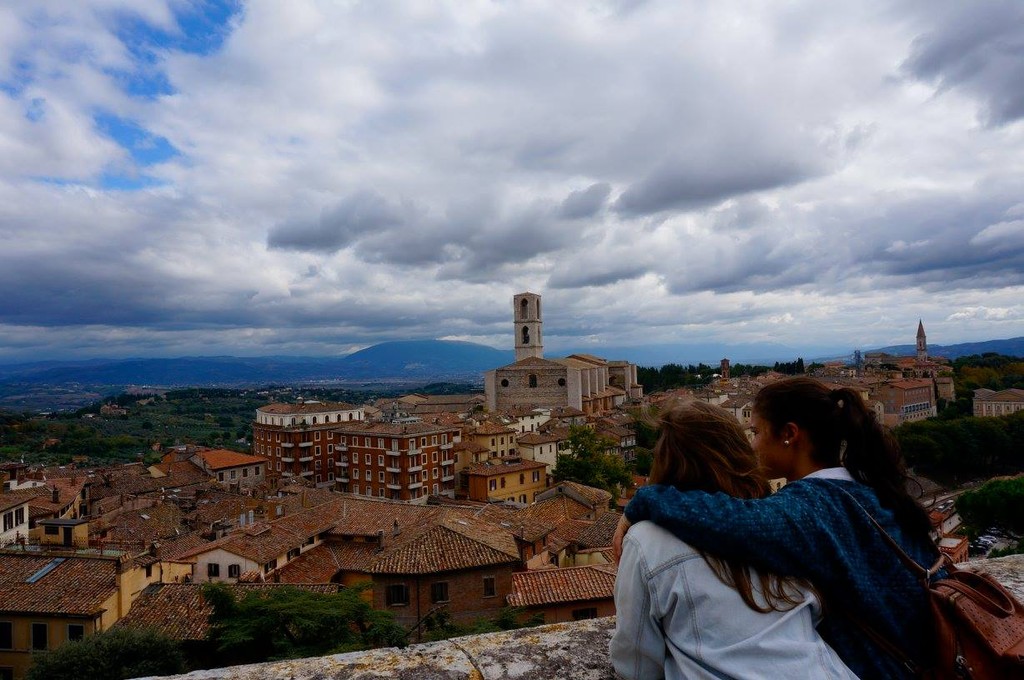
Erasmus è qualcosa di indescrivibile, un’emozione inspiegabile, che per capirla bisogna viverla.
Un erasmus è per sempre.
Photo gallery
Content available in other languages
- Español: Erasmus en Perugia
- Français: Erasmus à Pérouse, en Italie
- Italiano: Erasmus a Perugia
Share your Erasmus Experience in Perugia!
If you know Perugia as native, traveler or as exchange student... share your opinion on Perugia! Rate different characteristics and share your experience.
Add experience →























Comments (0 comments)